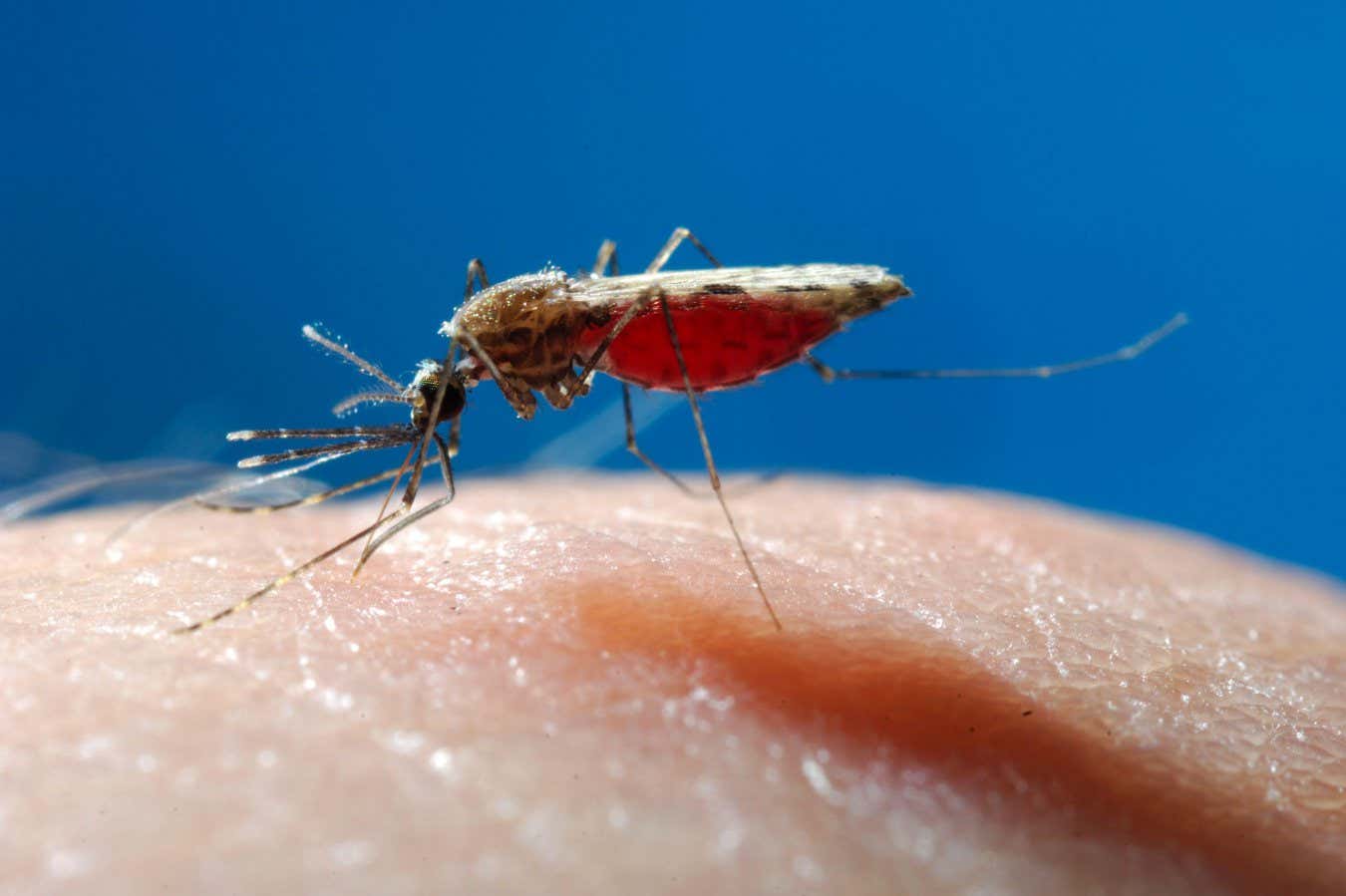A vaccine induced an immune response against the malaria parasite Plasmodium vivax, which can remain dormant in the body and cause a relapse of symptoms
By Jason Arunn Murugesu
12 July 2023
An Anopheles mosquito, which can transmit malaria parasites, including Plasmodium vivax
BIOSPHOTO/Alamy
An experimental vaccine that targets a malaria parasite behind a relapsing form of the disease has shown some promise in a small trial. Researchers tested two vaccine candidates, finding that neither had any serious safety concerns, but only one induced a substantial immune response.
The parasite Plasmodium vivax is the second most common cause of malaria in the world, responsible for 4.9 million cases in 2021. Unlike Plasmodium falciparum, the parasite that most commonly causes malaria, no vaccine is approved for P. vivax, which can remain dormant in the body and cause a relapse of symptoms.
Mimi Hou at the University of Oxford and her colleagues have developed two vaccines against P. vivax, which both target the so-called Plasmodium vivax Duffy binding protein. Previous studies have found that people who lack a receptor for this protein in their red blood cells appear to be more resistant to P. vivax.
Advertisement
One of the vaccines, a viral vector vaccine, uses a modified virus to deliver the parasite’s genetic information to cells to induce an immune response. The other, a protein-based vaccine, does this by introducing some of the parasite’s proteins.
In a trial of 18 healthy volunteers – aged 18 to 45 – eight received the viral vector vaccine, while the other 10 received the protein-based vaccine. Due to the covid-19 pandemic disrupting the trial, the timing of different vaccine doses varied among the participants.
Between two and four weeks after their final vaccine dose, the participants were injected with blood containing P. vivax. The team also injected 13 people who weren’t given either vaccine to act as the control group.
